We were lucky to catch up with Ajibola Rivers recently and have shared our conversation below.
Alright, Ajibola thanks for taking the time to share your stories and insights with us today. Can you talk to us about a project that’s meant a lot to you?
The single most meaningful project I have ever worked on is my first published work, my Six Suites for Solo Cello. It took me six years to write, and it was easily the hardest work I have ever done.
It started out as a training exercise. I applied to Temple University’s Boyer College of Music and Dance as a double major for Cello Performance and Composition. I left the composition program after one year because my ideas were too different from what I was being taught at the school. I stopped writing for a few years but picked it up again on my own.
In order to be successful as a self-taught composer, there were certain skills I wanted to make sure I had. I wanted to learn my writing skills in chronological order and practice them by writing for individual and small groups of instruments. For me, that meant writing music for solo cello aiming toward the style of Bach. I wrote one piece to that end, but then got the idea to mix Baroque counterpoint with jazz and I wrote three pieces with this idea in mind. In the summer of 2017 I played this music for my mom and she said it sounded really unique. We had a brief conversation about the potential cultural significance of this work and I decided to write six of my own cello suites.
The only other collection of six cello suites in existence was composed by Johann Sebastian Bach in 1723, and it was pure coincidence that my set was completed exactly three hundred years later. It was incredibly difficult writing that I had to revise multiple times, and there were several times where I was completely overwhelmed trying to put it together. I knew, however, that I was growing a lot through that work; imitation is the sincerest form of flattery, and imitating the best definitely brought out the best in me. The anticipated growth was a major motivating factor, but what really kept me going was the cultural significance of the work. There is serious underrepresentation in classical music when it comes to BIPOC music and culture. I feel that cross-collaboration is what helps art to evolve the most, and there is huge untapped potential between some of the oldest and most prevalent music communities in the Western world.
This work has changed me as composer. In learning to speak a highly technical musical language I have given myself so many tools for writing that I will use for the rest of my life. If I am gone tomorrow, I can be content knowing that I have made a significant contribution to music history. This music is as challenging to play as it was to write, and performing and premiering this work over six months was a huge undertaking that I am so proud of. Lastly, this work is having exactly the effect that I had hoped for; people from all different walks of life, playing cello and many other instruments, have taken an interest in this work and its message about inclusion, representation, and celebration of the differences that ultimately bring us closer together. This work has given me the confidence and validation to call myself a composer, and I am hoping to do much more hard and good work from here on out.
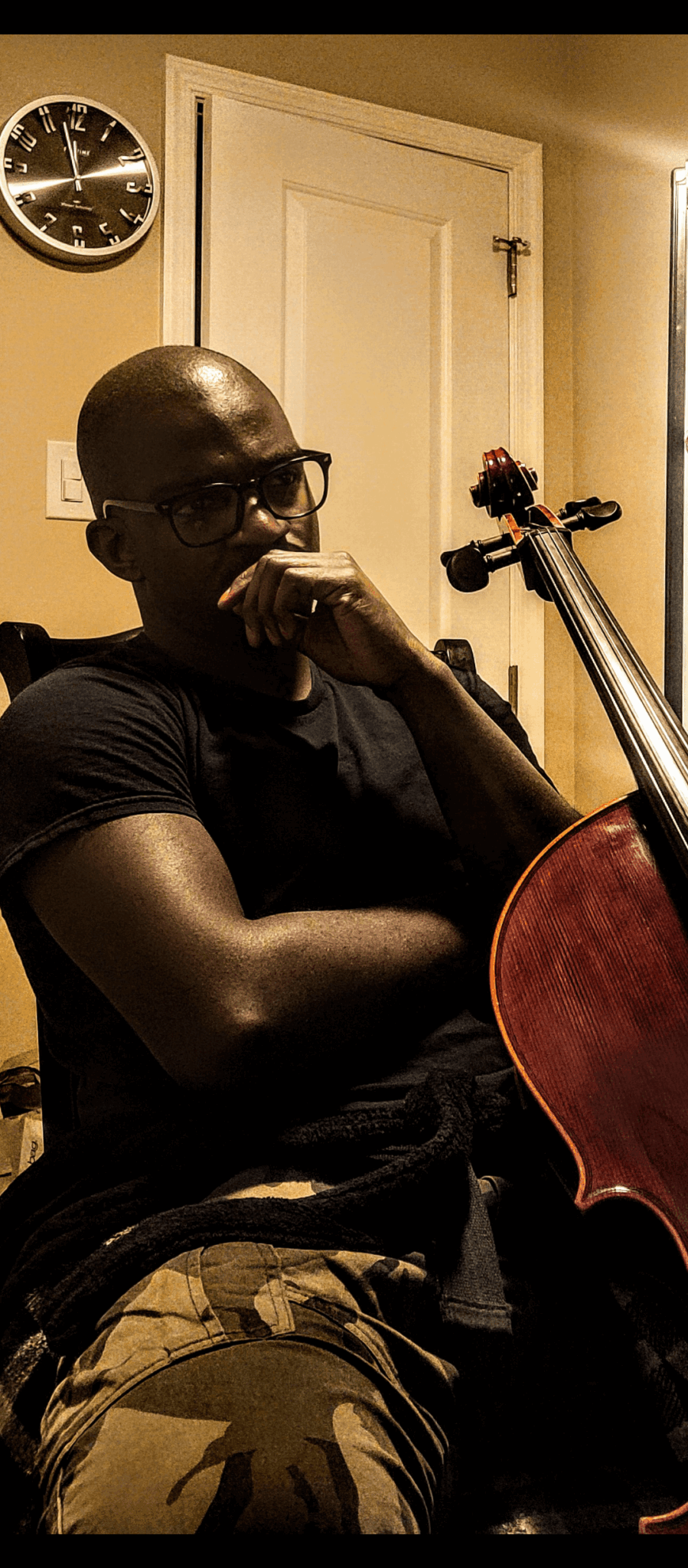
Great, appreciate you sharing that with us. Before we ask you to share more of your insights, can you take a moment to introduce yourself and how you got to where you are today to our readers.
My name is Ajibola Rivers. Ajibola is a Nigerian name that means “Awake to Richness.” I am a professional cellist, composer, bass guitarist, and music teacher.
I started playing the cello in third grade at Ridge Park Elementary School. There was a satellite program attached to the Settlement Music School, where one of the strings teachers came to the school and asked if anyone wanted to learn violin, viola, or cello. I said I wanted to play the cello, and I have been playing and learning that instrument ever since.
I started composing informally during high school. While I was taking music theory classes, I would regularly finish assignments early and doodle during the remaining minutes of class. I would do this often enough that I had composed a substantial body of work by the end of each semester. One day my theory teacher came by and asked to hear some of what I wrote, and told me I needed to apply for a composition degree in college, alongside cello. I never received a degree in composition, but using what I derived from music theory and few things I learned at Temple University I have found my own way as a writer. I first started writing commissioned works back in 2017 and I just released my first published work in December of 2024. I have taken requests to write music for ensembles, music events, weddings, birthdays, and other occasions, and I still do. I have written for everything from solo cello to choirs with accompaniment. I have a number of projects coming up this year, and in between I will be taking requests and commissions regularly.
I started playing bass guitar in my senior year at Temple University. While I was there I was meeting different people through cello and got in touch with some folks in the open mic crowd. I started out accompanying a few singer-songwriter guitarists and a group of us were planning to do a big show together. One night we had a rehearsal at a friend’s house and the bass player for one group didn’t show up. There happened to be a bass guitar in the attic, and someone pointed to me and told me to play it. I had never touched a bass guitar in my life before that point, but I survived the rehearsal, bought my first bass a few days later, and within two weeks I played my first show. I have been holding down a church gig for a few years now, and I occasionally take musical theater gigs and play other events as well.
I started teaching music during my one-year fellowship in Memphis, TN back in 2016. During that time I was trained for everything from interviews to master classes. I regularly assisted an orchestra teacher at a K-8 school over there and I even gave a lecture at the Scheidt School at the University of Memphis. When I returned to Philadelphia in 2017 I started teaching private lessons through a number of music schools downtown and slowly built up my volume of students until I started teaching lessons out of my own home. While I now mainly teach cello, I have also taught violin, viola, bass, and bass guitar.
What sets me apart from other artists, however, is my philosophy. When it comes to performing, I believe that artists are the vehicle through which audiences experience life through sight and sound. We interpret and internalize our work, live and breathe the notes on the page, and radiate that energy out to our audience through artistic expression. Every gesture, movement, feeling, is part of the story, and what keeps art alive is the uniqueness with which we present ourselves and our work.
When it comes to composition I have two philosophies. First, a composer is like a chef: give me any combination of ingredients and I can create a recipe, but it is my responsibility to tailor my menu to the people I serve. The traditional recipes, the new twists, the party staples_ all of these are based on the people and the cultures I am engaging with. To write effectively is to be sensitive to the times and the people of the time, to cater to and expand their needs, to understand them in order to better enrich their lives through my art.
The second idea is an interpretation of the arts world as an ecosystem, and a composer’s place in it. The sun, the source of all life and energy in our solar system, is equal to raw, abstract creativity. This material gets turned into nutrients by the producers, the creative minds among us, be they painters, composers, songwriters, poets, choreographers, and the like. I could extend this metaphor further, but what it means to me as a composer is that I can’t just write whatever I want. There is an entire community of people counting on me to create something they can use to connect with and sustain others. I must learn their needs, hear their voices, and then use my ability to create something that will serve all of us well enough to preserve this musical artform, its practices, and its traditions indefinitely.
Finally, teaching is the glue that holds everything together. It is the reason why I practice harder at home and sit up straighter in performance; it is the reason why my compositions challenge many norms in the classical community; it is the reason why I have a speaking component for any of the presentations that I host. The words I live by are, “As a creative artist, I have a social responsibility to explore, invent, and discover ways to unite and empower worlds through any medium. For art. For all. For life.” To live by those words is to set an example for others, and to succeed on that mission is to demonstrate its potential for those who seek to broaden theirs. At the highest level, there is no separation between teaching and art. I believe, in fact, that teaching is the final evolution of art, where we take everything we have learned over our personal journey and communicate it to our students with a unique beauty that pairs our knowledge with a unique personality.
If I ever get to be a public speaker one day, this ideology will be the fuel behind the fire of my message.
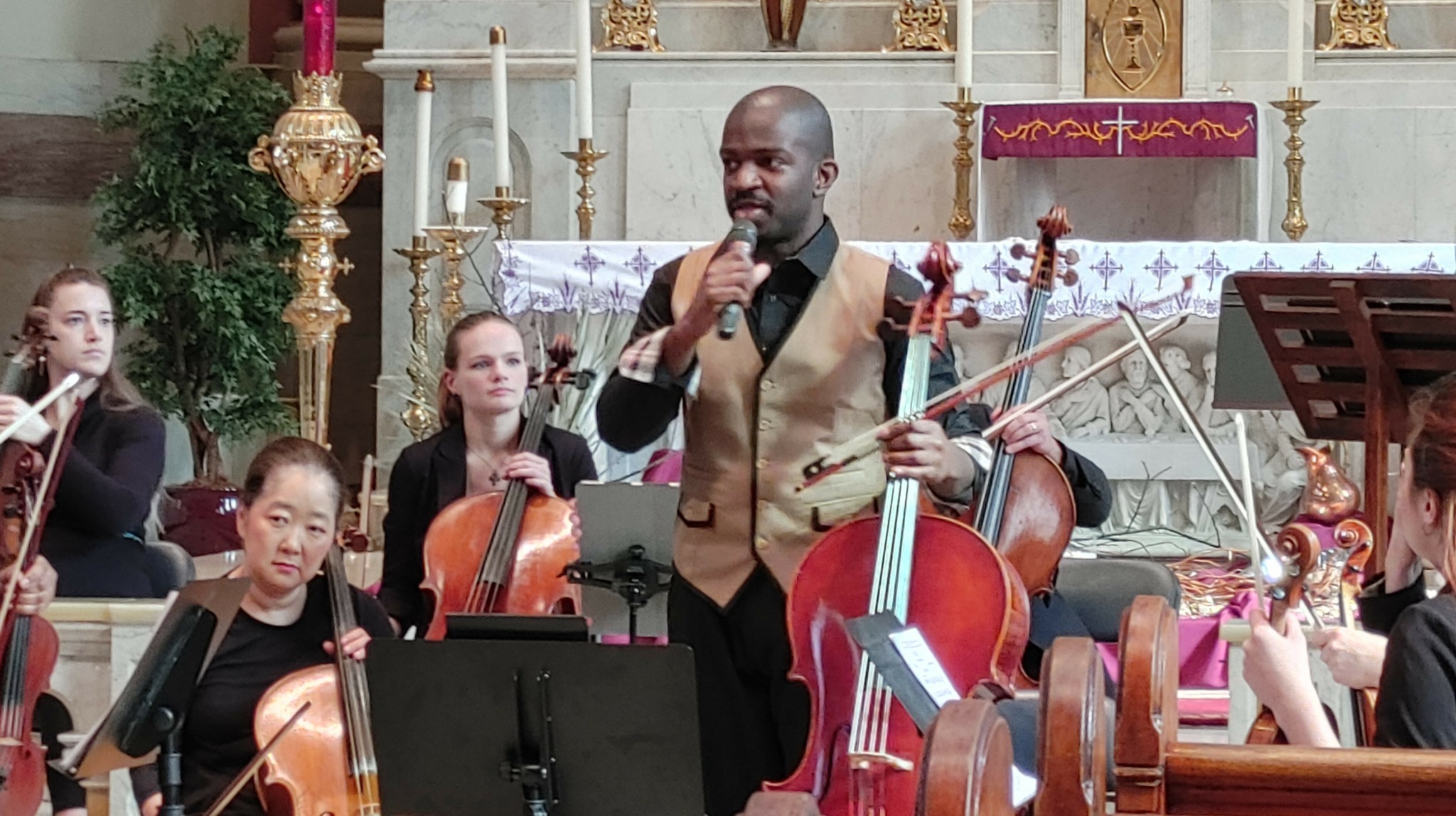
What do you think is the goal or mission that drives your creative journey?
“As a creative artist, I have a social responsibility to explore, invent, and discover ways to unite and empower worlds through any medium. For art. For all. For life.” To live by these words means that creating is not something I do: creating is who I am. My work is not finished until I am, and only history will know what my last work will be. I believe that the constant goal of art is to encourage open-mindedness, to broaden or enhance perspective. Art is a powerful tool, but to wield it effectively we must know who were are speaking to through our creations. A work of art is only as effective as the audience with which it resonates; nothing an artist makes is ever for the artist alone, and if I choose to create this way I will be grossly mismanaging my creative resources. It is my job to understand people in order to better relate to them, and those who relate best are remembered. My goal is to create a legacy, not in terms of greatness but in doing work that has an impact that extends beyond my time and my immediate sphere of influence. I want to do work that inspires people to inspire more people, work that helps rather than hinders this world. Sometimes my ideas will be received with open arms, other times it may encounter immeasurable resistance; my intent to either end, nevertheless, should always be to serve the people and to improve their lives through my work, eventually if not immediately or obviously. My goal is to learn everything I can to make the most of this life, and then document what I have learned for someone else to enjoy.
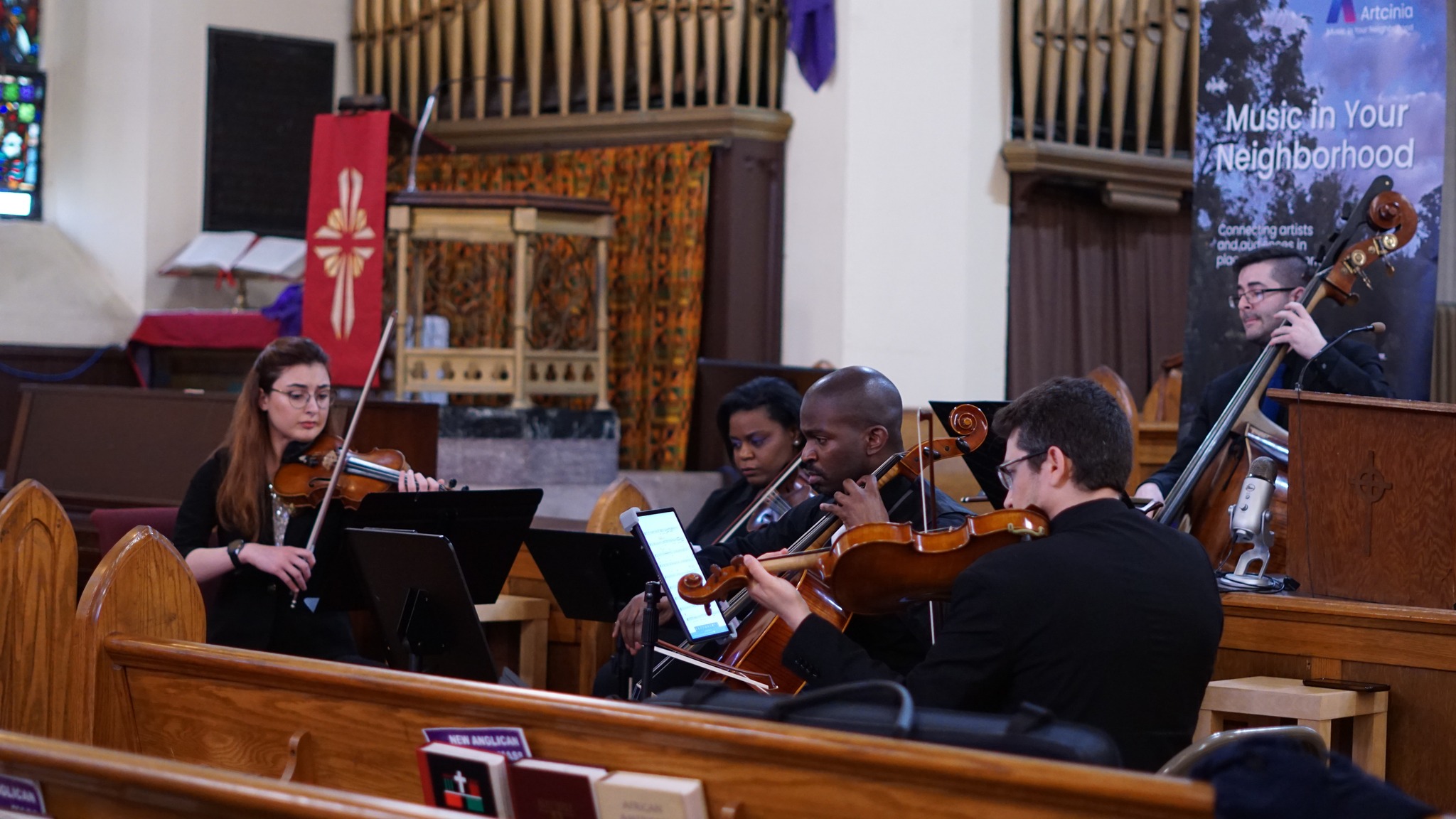
Is there something you think non-creatives will struggle to understand about your journey as a creative? Maybe you can provide some insight – you never know who might benefit from the enlightenment.
Non-creatives will struggle to understand how hard it is to be a creative artist. Everyone has heard of the starving artist; most people know how risky it can be to pursue an artistic life and the hardships that we face trying to create a career the success of which is almost entirely dictated by whether or not other people like who we are and what we do. Everyone knows that it takes a lot of practice, dedication, and refinement of talent to be a performer in any concentration. That understanding, however, applies to all artists, creative or otherwise. When you are a creative artist, everything depends on you and your decisions. You have to set your own schedule, create your own goals, refine your own craft, live with your own demons, every minute of every day. If you have a day job, you have to get out of bed and go to work in the morning or you’re fired. You report to someone else, and there is always someone or something to motivate you to keep going. If your work is entirely creative, there is nothing and nobody to tell you to keep going. Your only motivation comes from how you are feeling at that moment in your life and the ideas in your head, and sometimes the only ideas you have to work with are the fear of your own disappointment and the reality of your own suffering. If neither of those scare you, before long you can succumb to procrastination that slowly gives way to apathy, and you can lose yourself over time. Creativity is not just something I do as a hobby or, if I’m lucky, to put food on the table; even if I never receive a dime for any of my work, there is a part of my identity that can only be kept intact by creating. I have to do it, constantly. Other artists have the luxury of milestones, seasons that end, careers from which they can eventually retire and look back on. My work never ends because my ideas never stop coming; I will have ideas on my deathbed, and the only one who can realize them is me. Being a creative artist is an incredibly rewarding experience, but there are times during this work where no other human could be any lonelier. It is cathartic but grueling, fulfilling but merciless… and I can’t see myself doing anything else.
If you are going to be a creative artist, be prepared for a journey for which you can never be fully prepared. The highs and lows are incredibly personal, and you have to take every victory you get in order to maintain that lifestyle. For those who are non-creative, understand that even in our brightest moments we are never truly at peace. The moment after we write the last autograph, pose for the last photo, sign off of the last interview, we are back to searching for our next dose of fulfilment, contemplating our next project, drafting our next work. It is less about choosing a path and more about resigning to self-acceptance; creating is who we are, not just what we do, and we are lucky if we get to do it sustainably.
Contact Info:
- Website: https://ariversarts.com
- Instagram: ajibola_rivers
- Facebook: Ajibola Rivers / Ajibola J. Rivers
- Youtube: Ajibola_Rivers
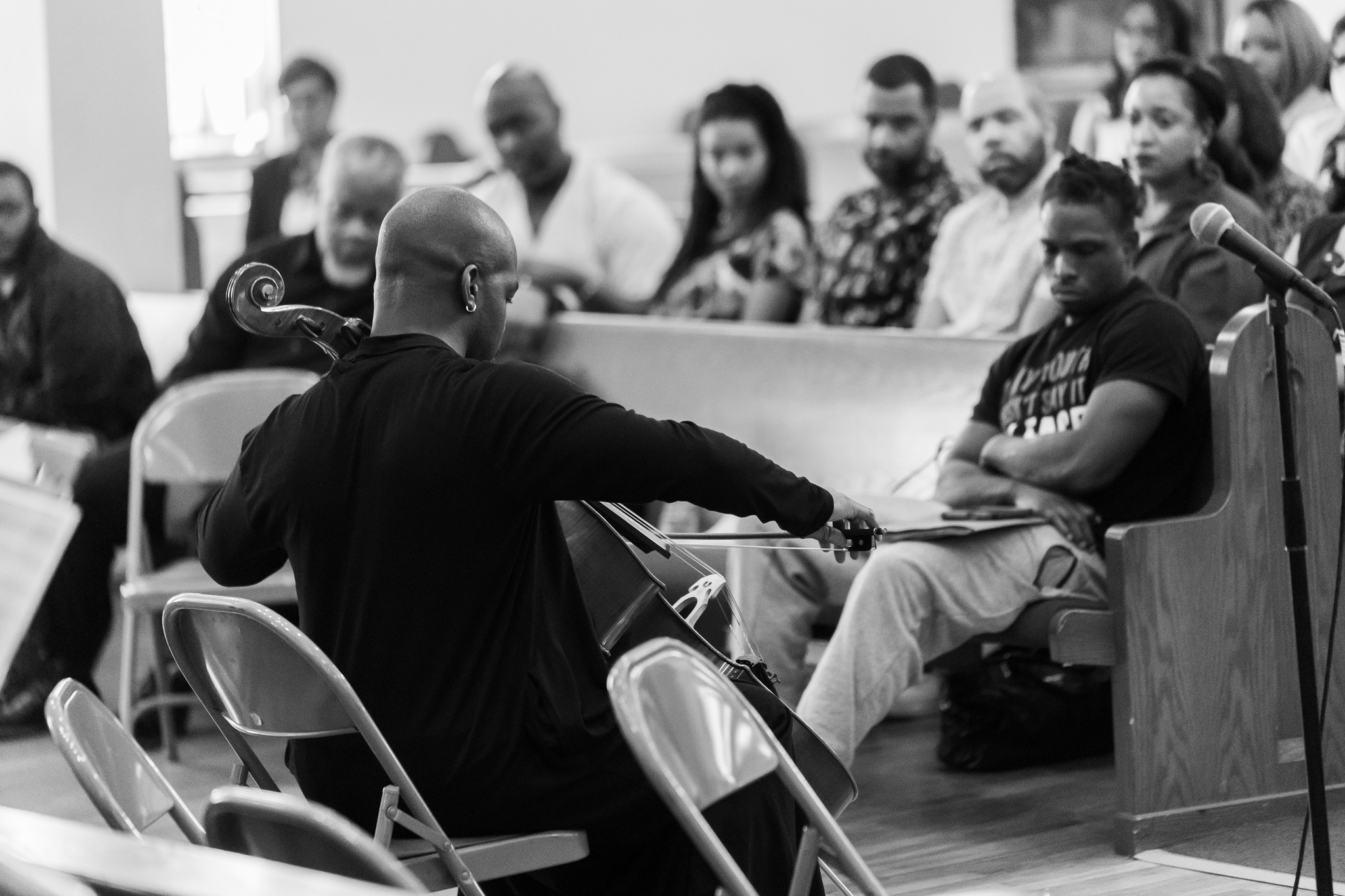
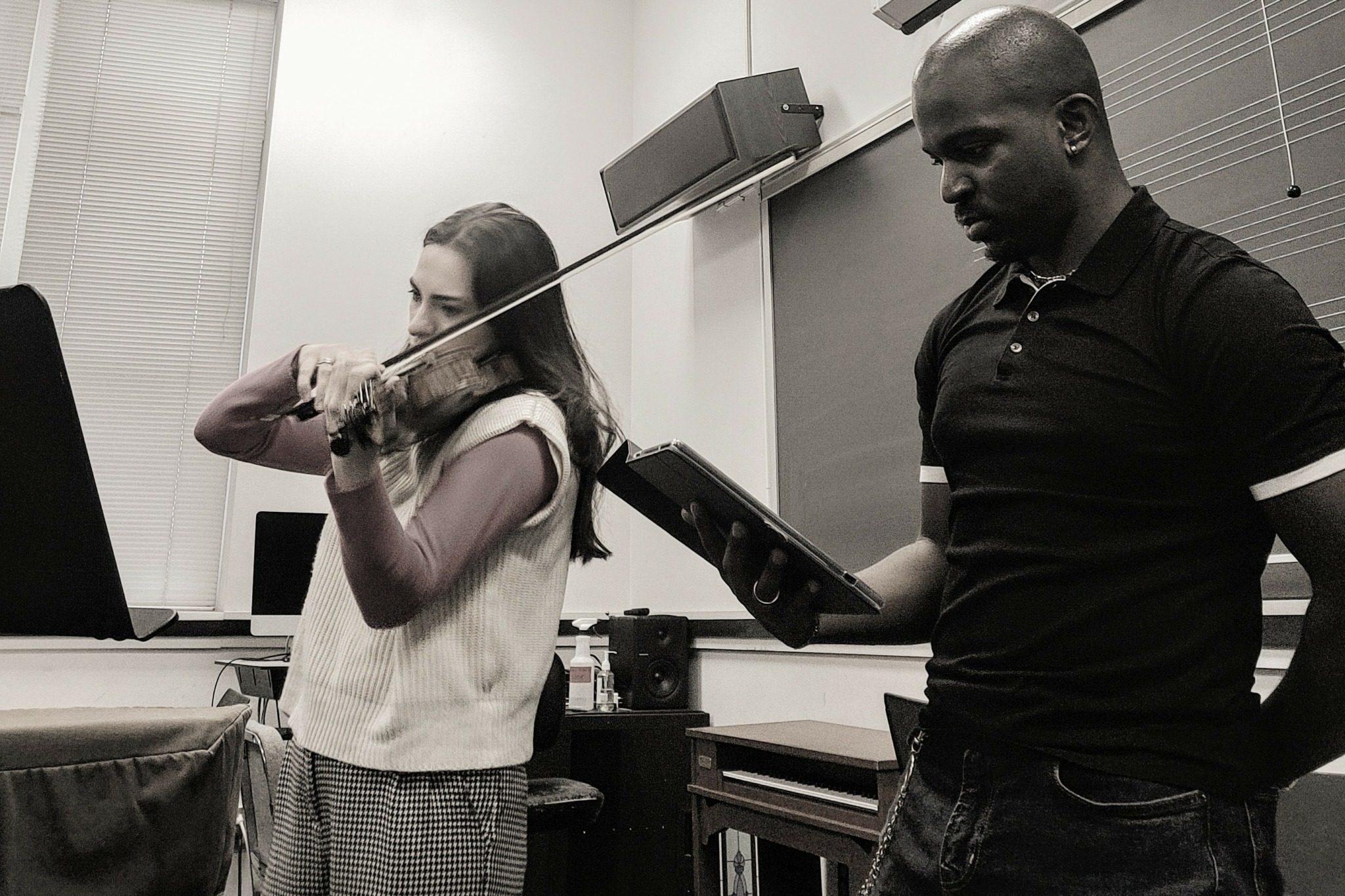
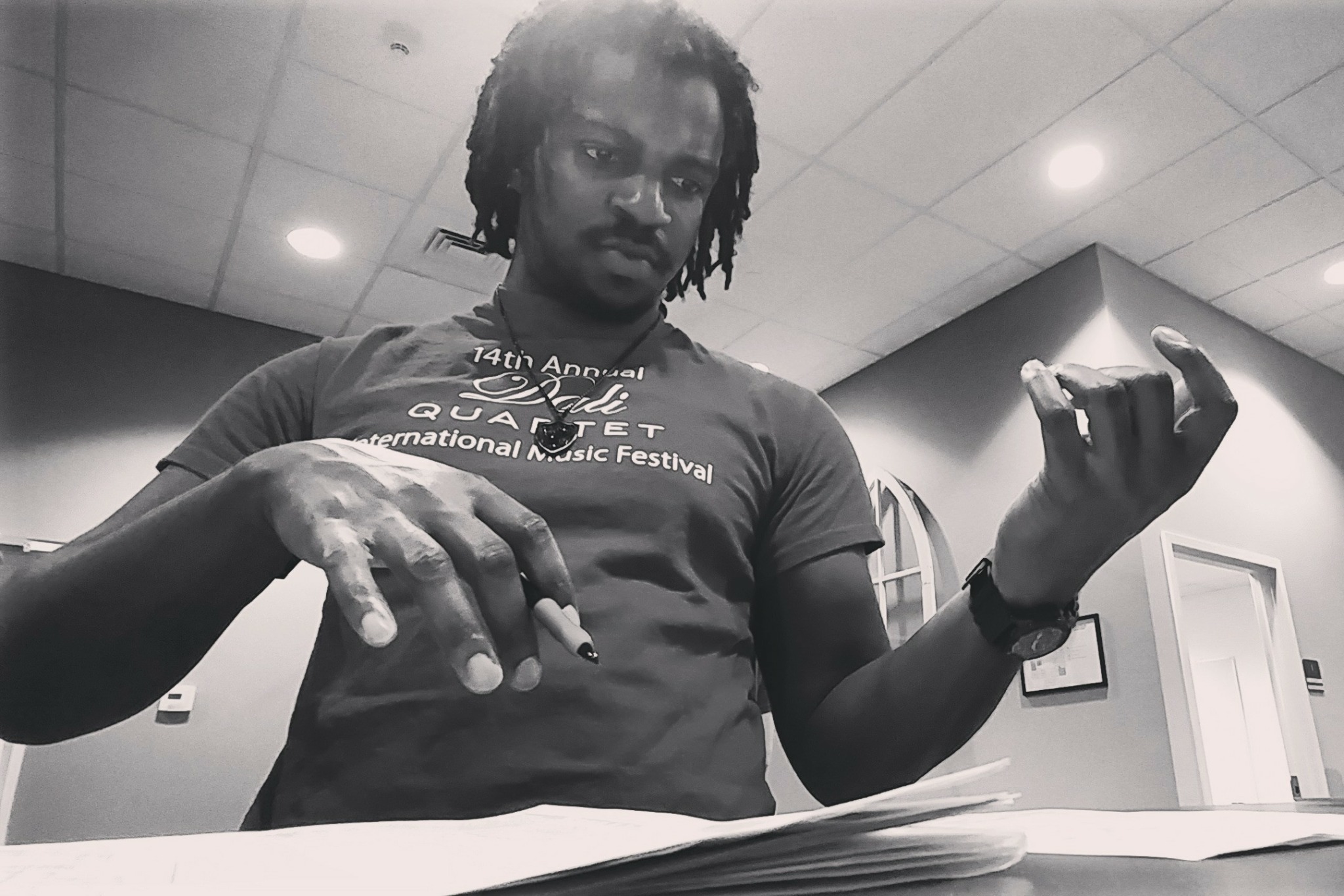
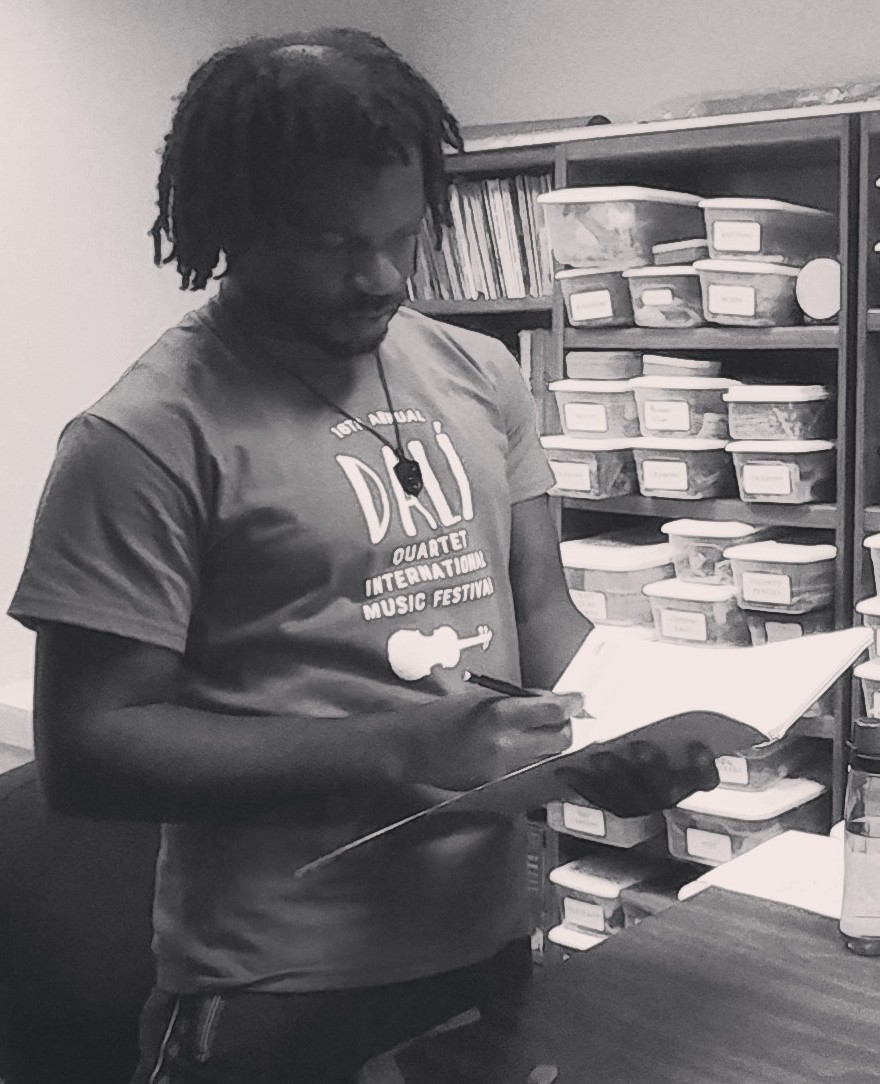
Image Credits
Ajibola Rivers
Yonnie Simon
Marco John
Titi Lakeru-Rivers


